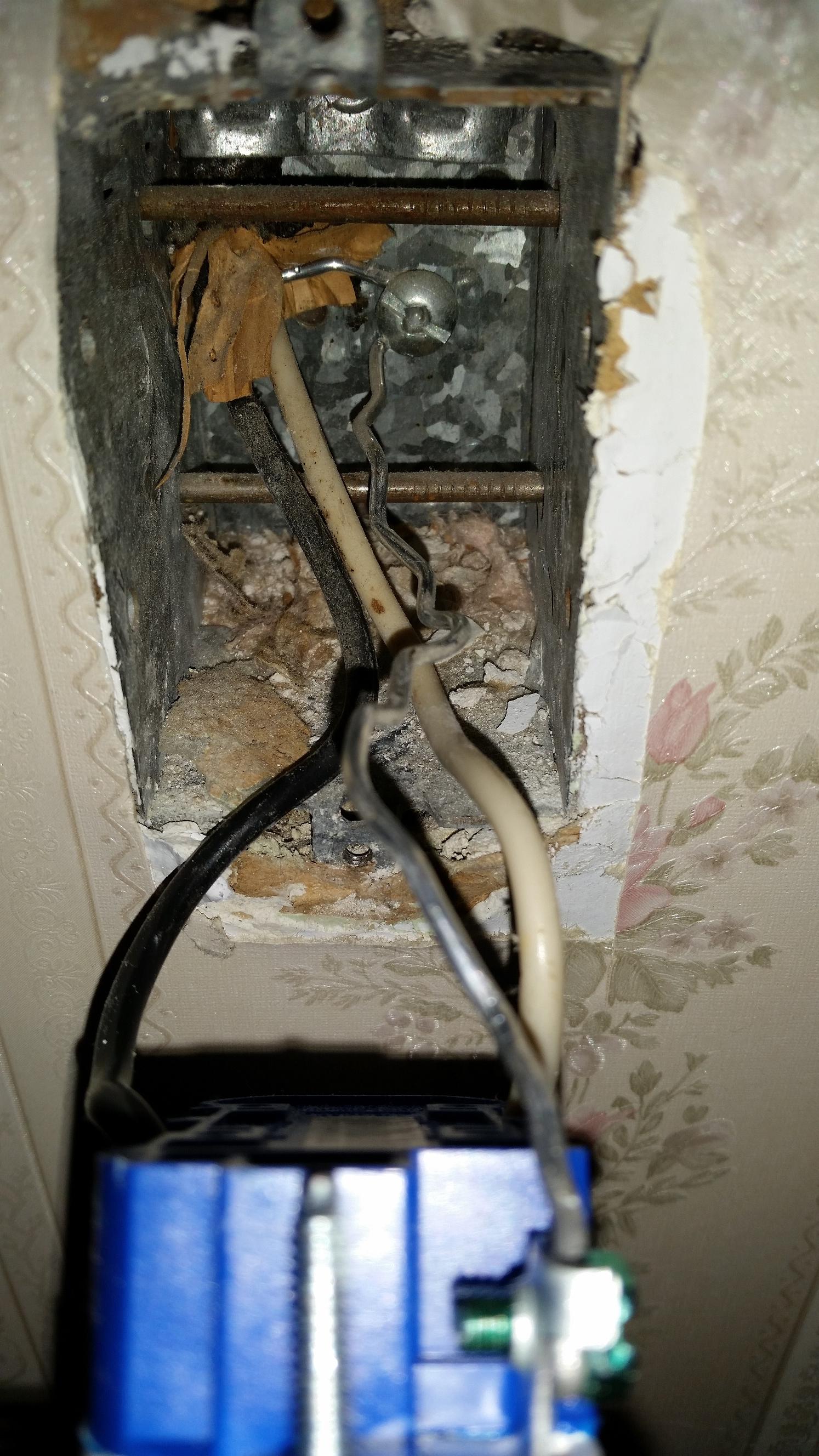In the photo, does the bare ground wire run continuously from the Romex, under the screw, to the outlet? Or is that a shorter piece of wire just running from the outlet to the box?
In any case, the box is not grounded, based on what you've shared. Take a voltmeter and test between your hot and ground wire in the Romex. You should see ~110V. If so, you've got an easy fix at the box, one way or another.
If you don't see voltage between hot and ground, (or possibly between hot and the box, if the box is grounded -- which I doubt here) then there's nothing you can do at this end to fix it. You'll need to trace back to the breaker panel and find where you've lost the ground. You might start at the panel, or the next outlet (closer to the panel) from the suspect outlet. This is tedious work, but probably will reveal a bad connection somewhere along the way.
An alternative is to pull a new wire. If you have good access, this isn't the worst thing in the world, and could avoid a lot of troubleshooting.
I'm not qualified to give advice. Follow my advice and you'll probably die. You've been warned.

